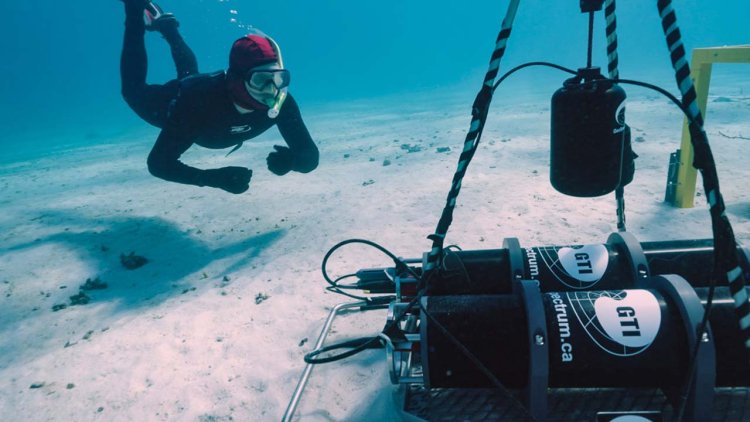World’s first library of underwater biological sounds to monitor changing marine life
Move over Spotify, marine experts across the world are working together to create a global platform containing the sounds of underwater life, to monitor the changing environment and inform marine conservation.

The open-access Global Library of Underwater Biological Sounds (GLUBS) is the proposal of 17 experts from nine countries, including Australia, and will use artificial intelligence (AI) and citizen science.
It will contain the signature sounds of mammals such as whales, as well as invertebrates, fish and crustaceans, many of which are nocturnal or hard to find, making visual observations difficult.
The team’s paper, Sounding the Call for a Global Library of Biological Underwater Sounds, published in Frontiers in Ecology and Evolution, calls for a workshop this year, bringing marine scientists together with digital experts to realise the long-held dream.
The lead author, AIMS marine acoustics scientist Dr Miles Parsons, said listening in on life in marine, brackish and freshwaters, allowed scientists to monitor changing diversity, distribution and abundance, and identify new species.
He said:
“Using the acoustic properties of underwater soundscapes, we can characterise an ecosystem’s type and condition. Collectively there are now many millions of recording hours around the world that could potentially be assessed. With biodiversity in decline worldwide, and humans relentlessly altering underwater soundscapes, we need to document, quantify, and understand the sources of underwater animal sounds before they potentially disappear.”
Besides making sounds for communication, many aquatic species produce ‘passive sounds’ while eating, swimming, and crawling which provided important information about the ecosystem.
The team’s proposed platform will integrate and expand existing libraries around the world to provide an open-access reference library of known and unknown biological sound sources.
It will include a training platform for AI algorithms to detect and classify sounds, will allow scientists to develop species distribution maps and will include a citizen science component.
Rockefeller University scientist Dr Jesse Ausubel said AI would help scientists better understand the “lyrics” of fish songs.
Of the roughly 250,000 known marine species, scientists believe all 126 mammals emit sounds – the ‘thwop’, ‘muah’, and ‘boop’s of a humpback whale, for example, or the boing of a minke whale. Audible too are at least 100 invertebrates, 1000 of the world’s 34,000 known fish species, and likely many thousands more.

























































































































































